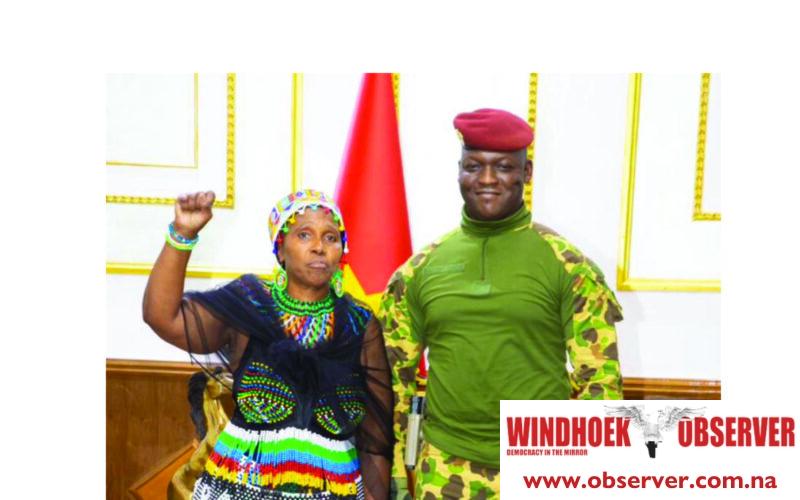Renthia Kaimbi
South African MP Khanyisile Litchfield-Tshabalala has been branded an anti-Semite in Germany after questioning the country’s stance on reparations for the Namibian genocide.
The incident followed her keynote address in January 2025 at the Haus der Kulturen der Welt (HKW) museum in Berlin, where she was invited in her capacity (before becoming an MP in June 2025) as a Decoloniality and African Spirituality scholar to speak on “Rematriation as Reparation in Afrikan Spirituality”.
Litchfield-Tshabalala told the Windhoek Observer that her lecture began with themes of justice and balance in Nguni culture.
“When they invited me, we agreed that I’d touch a bit on European Specialties before the rise of capitalism and spirituality/religion, with the aim being to highlight the general balance in spirituality. Spirituality for us (Africans) is about feeling and deliverance, and Europeans cannot talk to us about multilateralism unless they are delivered,” she said.
She then turned her remarks to Germany’s 2021 agreement with Namibia, under which Germany pledged €1.1 billion (approximately N$22 billion) over 30 years as “development aid” rather than formal reparations.
However, the agreement was met with opposition from many descendants of the ovaHerero and Nama genocide, who argued that it did not represent direct compensation and was reached without their full participation.
According to reports, Namibia’s Cabinet had set a deadline of March 2025 for signing the joint proclamation, but no update has been provided.
“We want reparations! And there must be a formal apology. If they are refusing that it was genocide, then what was it? When you exterminate over 50% of a people, what do you call it? Murder? How can it be murder? That is genocide,” said Litchfield-Tshabalala.
Litchfield-Tshabalala also drew parallels between Germany’s stance on reparations and its support for Israel in the Gaza conflict.
Organisers claimed this comparison crossed a line. Within hours, HKW and the co-hosting Goethe-Institut London issued a statement condemning her speech.
They accused her of abandoning the theme and promoting “antisemitic and historical revisionist conspiracy theories”. The institutions said they were severing ties with her.
The following day, she was branded an anti-Semite and revisionist. In 2019, Germany established a parliamentary resolution that broadly defines criticism of Israel as anti-Semitism.
Anyone found in contravention would effectively be banned from receiving public funding, speaking at German institutions or from entering the country again.
“I questioned who runs Germany, is it the Germans or the Jews? Because why is the Jewish thing such a hold on Germany? But also, I argued that there’s a one percent that rules Europe, that’s holding the whole of Europe at its behest.
I was in Germany when the wall fell. I have spent a year in Germany. I was in the navy, and we bought our ships from Germany. I mean, honestly, I’m not going to die for not going to Germany,” she said.
She vowed to continue campaigning for reparations.
“I mean, the 2025 African Union focuses on reparatory justice and racial healing under the theme ‘Justice for Africans and People of African Descent Through Reparations’,” she said.
Germany formally acknowledged the genocide of the Nama and Ovaherero people in 2021, following years of discussions.
Between 1904 and 1908, German colonial soldiers carried out crimes against the Herero and Nama people.
The killings were part of a German programme of collective punishment, widely recognised as the first genocide of the twentieth century.
Despite this unresolved process, President Netumbo Nandi-Ndaitwah, during her State of the Nation speech at Parliament earlier this year, stated that Germany had committed to providing resources in excess of the €1.1 billion that had already been pledged in the ongoing discussions.




